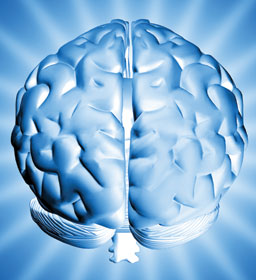

Manufacturers and other industrial organisations have long been challenged with applying expertise consistently throughout the organisation. Demographic trends and new technological advances promise to further challenge industry participants. To stay competitive, industrial companies will need to embrace new, transformative technologies like cognitive computing.
Ideally, the lessons learned today are rolled into the decisions of tomorrow. When contemplating new challenges, the wise will ask others what they have learned, so this knowledge can be applied to help ensure future success.
In the corporate world, this approach to knowledge transfer became more institution-alised. Mentoring became a formalised and encouraged practice. This progressed into the adoption of standard operating practices that attempt to encourage the consistent application of expertise across an organisation.
Standards and procedures not enough
Technology continues to increase in capability and flexibility and companies continue to merge and grow. Companies move into new markets and must adapt to global pressures and cultures. The ratio of experienced to inexperienced personnel in industrial plants is changing. The established procedures and standards often prevent adoption of transformative technology and techniques and may not apply in all circumstances. Corporations are losing the expertise that can explain why the procedures were written the way they were and adapt them to new situations.
Retiring experts are also leaving holes in the organisations and the remaining experts are spread more thinly across the globe. As a result, collaboration and consensus are more difficult to achieve. Knowledge availability becomes limited to documentation, which may be difficult to find or difficult to understand without context.
Industrial projects are becoming more complex, presenting greater risk and bringing organisations into uncharted territory in which the intuition derived from years of experience would be crucial to success; but increasingly, is in short supply. New and innovative technologies promise to change the way industry does business, challenging the standards and procedures in place.
In this time of increasing technological change, declining heritage, and data overload, organisations must address the questions: “How do we effectively train and inform our new talent?” “How can we access and apply knowledge faster and consistently?” and “How do we retain priceless corporate knowledge and heritage, without precluding adoption of appropriate transformative technologies to maintain future competitiveness?”
Industry under pressure
In recent discussions, a major oil company shared with ARC Advisory Group that it is expecting to experience a 20% shortage in engineering staff over the next five years. This means that if the industry continues to operate with the same model, projects will be staffed with under-qualified personnel and overall project quality is likely to suffer.
Upkeep of existing facilities can also suffer for similar reasons and staffing will also become more expensive. The cost of technical expertise in Calgary has increased nearly 50% over the past five years for this very reason. A shortage of qualified engineers and other technical personnel is also one of the reasons why the major LNG projects in Australia have been running behind schedule and over budget.
Because demand is far outpacing supply, ARC expects this trend to continue for the foreseeable future. Therefore, the costs for technical talent will increase, affecting projects, maintenance and business performance.
Standards and procedures generally cannot foresee new technology innovations and are inflexible by design. As a result, these older ways of conducting business may not apply to or fail to utilise the promise that new technologies make available. Innovation slows, and the organisation risks missing competitive opportunities afforded by the new technology.
Enter cognitive computing
Cognitive computing mimics human thought processes in a computerised model. It involves self-learning systems that use data mining, pattern recognition and natural language processing in a similar manner to the way the human brain works to analyse information and solve problems. The goal is to create automated IT systems that can solve problems without requiring human assistance. Cognitive computing systems use machine learning algorithms and continually acquire knowledge from the data fed into them by mining data for information. The systems adapt the way they look for patterns and the way they process data to be capable of anticipating new problems and modelling possible solutions.
Cognitive computing technology is already being adapted to capture expertise and knowledge in the medical field, which faces a similar shortage of personnel in the US as the industrial sector. Here, it promises to reduce errors in diagnosis while bringing consistency. In the medical application, cognitive computing isn’t seen as a replacement for the doctor, but as a collaborative assistant.
Engineering would be another great fit and a natural progression, particularly if aligned with related emerging trends such as cloud computing as a delivery platform for cognitive computing and the Industrial Internet of Things (IIoT) as a source for data and analysis. Readers will note that these are all trends that challenge the way an organisation currently works.
Expertise is leaving; therefore the organisation needs to document that knowledge. The industry has relied on procedures and standards to accomplish this, but these dry documents lack a teaching component; the ‘why’, which currently only our human experts can provide. However, cognitive computing applications can ‘read’ these documents and, in the process, train themselves to capture knowledge that can be used to train humans and help solve problems.
The more industrial organisations document their procedures and best practices, the easier it is to ‘train’ a cognitive computing application.
For more information contact Paul Miller, ARC Advisory Group, +1 781 471 1126, pmiller@arcweb.com, www.arcweb.com
© Technews Publishing (Pty) Ltd | All Rights Reserved